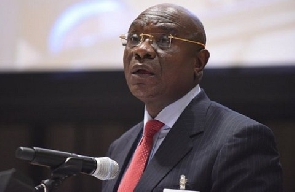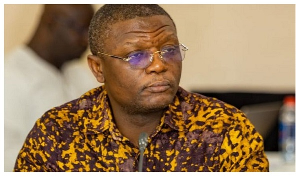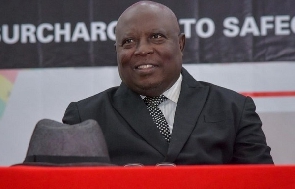The first of November is now National Sanitation Day in Ghana. According to MyJoyonline, on Friday, October 31, 2014, President Mahama said the following
Let me urge all political leaders, opinion leaders, especially traditional authorities, religious leaders, personnel from the security services, workers, students and other recognized bodies to mobilize their members to lend support to the National Sanitation Day by coming out in your numbers to participate fully in this maiden activity, and on the first Saturday of every month.
Certainly, massive participation in clean up exercises is important for the success of this endeavour.
Thanks to the President Mahama and others, we have yet another opportunity to engage in that important process of action and reflection.
Let’s start the reflection now.
For this questions can be helpful. Here are two: Why do we have such a massive sanitation (and hygiene, water and health) crisis? As a country have we done and are we doing enough to address our sanitation situation?
A good place to begin answering the latter question is to look at Government of Gana (GoG) budget allocations and expenditures. According to a recent Briefing Report by the Coalition of NGOs in Water, Sanitation (CONIWAS):
EHSD was allocated GHc1,581,281 for all its expenditures (wages and salaries, goods and services and Capex). 49% is expected to be spent on goods and services and 37.9% on Capex. It is important to note that the analysis on EHSD exclude support from Donors. The allocation to EHSD represents 0.7% of MLGRD budget, 0.18% of WASH Sector Ministries’ budget, 0.002% of MDAs budget and 0.009% of GDP. In terms of Per Capita Expenditure by EHSD, the figure is GHc0.064 (CONIWAS, 2014: 4).
Let’s just focus on the last line. Why is it significant that per capita expenditure by Environmental Health and Sanitation Department (EHSD) is GHc 0.064? This means that excluding support from “development partners” the EHSD is spending less than 10 pesewas per person on environmental health and sanitation. Let’s assume that 99 pesewas of prevention is worth more than 99 Cedis of cure. If the GoG is neither allocating nor spending not even GHc 0.10 pesewas for environmental health and sanitation, how can we address our sanitation challenge?
Addressing our national sanitation crisis, cannot be solved only by community mobilization on the first Saturday of every month. Of course, the government recognizes this and they are thinking about how to take this imitative well beyond a successful National Sanitation Day launch. However, preventing the need for a “National Sanitation Day” ought to already be at the forefront of our thinking. This requires at least four things: (1) adequate financing of sanitation management and (2) prioritization of the linkage between Health and sanitation (and water and hygiene), (3) political will and commitment to the 4Rs principle and (4) the end to open sewers and a rethinking of sanitation management.
Let’s take only the first point for now, the others will be addressed in a follow up article. To tackle sanitation management requires political prioritization of sanitation at every political level, invigorated by appropriate financing for sanitation management. This means at minimum:
· Fulfilling the Sanitation and Water for All (SWA) commitments as promised in April 2014 – investing US$50,000,000 to the sanitation and hygiene sub sector;
· Timely release of allocated funds from central government to MMDAs;
· At least 75% expenditure of sanitation allocations at the MMDA level, not central government
· Full accountability and transparency in the disbursement , allocation and expenditure of funds; and,
· Prioritization of sanitation and hygiene promotion.
Because the MMDA’s, as local government, are at the frontline of service provision, what happens at this level is of utmost importance. This is why citizens must not only mobilize for sanitation day clean-up activities, but become organized as rights bearers who demand accountability and transparency from elected officials and public servants as well as their rights to participate in decisions that affect their health, their lives. With this in mind, could sanitation be improved if it was legally mandated that at least 15% percentage of internally generated funds (IGF) should be used by MMDAs to support sanitation (and WASH) facilities and services at the local level? Of course, this would not mean that the central government is no longer responsible for timely disbursement of funds to MMDAs. The idea here is for MMDAs, whatever their ability to generate IGF, to demonstrate financial commitment to effectively addressing sanitation.
We need exemplary commitment! At every level of government, we need exemplary commitment to effective sanitation management. At every level of government, we need to see a political prioritization of sanitation as well as hygiene and water (WASH). This needs to be accompanied with strategic planning, disciplined and transparent implementation, with adequate financial resources, in a way that prioritizes the needs of the most marginalized. If we can collectively do this it will enable our nation to do more than mobilize for clean-up efforts on the first Saturday of every month. Instead it will rapidly speed up the realization of the rights to sanitation for everyone, everywhere in Ghana.
Dr. C. Uzondu is the WASH and Health Focal Person at WaterAid Ghana. He writes in his personal capacity.
Opinions of Sunday, 2 November 2014
Columnist: Dr. C. Uzondu



















